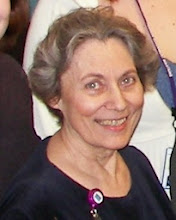From October 15, 2006
Insights from a State of Mind
In the coincidental reading of several different sources, I ran into some unusual, and rather complex, accounts about the human experience. I don’t pretend to have any answers, but I found them very thought-provoking.
> [from “Shakespeare Wars” by Rosenbaum, ch. 1, “Sept. 19, 1970: Arrive at Winchester, the hill where [John] Keats stood, inspiration for ode “To Summer.”] “I arrive and found the landscape had not been altered: that one could still see exactly what Keats saw. I could understand for the first time the line ‘white barred clouds bloom the soft-dying day, /And touch the stubble-plains with rosy hue. I saw those stubble fields’. I felt the ‘soft-dying’ end-of-summer melancholy Keats evoked with its intimations of immortality, of the autumnal harvest and the more final harvest of death to come.’”
> [Re: Sonnet 44 or 45, on themes of absence and presence] “I read standing at the blackboard in the seminar room. I had written out one of the sonnets on the blackboard and was leading the class through its flickering ambiguities. I think it could have been Sonnet 44 or 45, both of which play upon the themes of absence and presence: how two unified as one in love can both be, and not be, apart (can both “two be” and not “to be”). In Sonnet 45 the speaker tells an absent one how his thought and desire are ‘present-absent.’ How he’s there, one with the distant lover and be absent from himself, but to be absent from himself is to be two selves, one there and one not there, although the one not there is there with the absent lover, so really it’s one self at two different places… He’s not split so much as flickering in and out of being one and two selves. Not just back and forth from being at one with- to being - the loved one, but ‘with swift motion, sliding,’ shifting back to being himself. He’s not just being in two places at once, he’s two beings in alternation. Two be and not two be. … this shifting, this flickering - back-and-forth effect, this dual prospect…involves embracing something more than a shift in meaning… but a shift in … understanding. In effect, you are not merely reading alternative meanings into the poem [art, experience], the poem [art, experience] is reading alternative meanings, alternative identities, into you.” … “I recall banging the chalk in my hand on the blackboard, back and forth from ‘present’ to ‘absent’ in the phrase ‘These present absent wit swift motion slide’, and suddenly experiencing something strange. In some peculiar but pronounced and dramatic way, my self, my identity seemed to be shifting, sliding back and forth from presence to absence, from being there in that classroom to being somewhere absent, looking back on my presence, and then with swift motion sliding back to where I was standing again. I was no longer reading alternative meanings into the Sonnet. I felt like the Sonnet was shifting me back and forth between alternative selves, almost physically. I was standing inside and outside myself.”
> [from “A Summer All Her Own,” Rosanne Keller]
[p. 173] “It’s the process that is important…Lose yourself in the process. If you are constantly striving for perfection, it will always escape you… If the constant desire for perfection obstructed the artist’s process, … then striving for flawlessness in life would be counter-productive as well.”
[p. 178] “Anna felt as though she were both in and out of her body.”
[p. 279] “Happiness does not depend on interior circumstances. It is a state of mind. There is also true of loneliness. It too is a state of mind.”
[

No comments:
Post a Comment